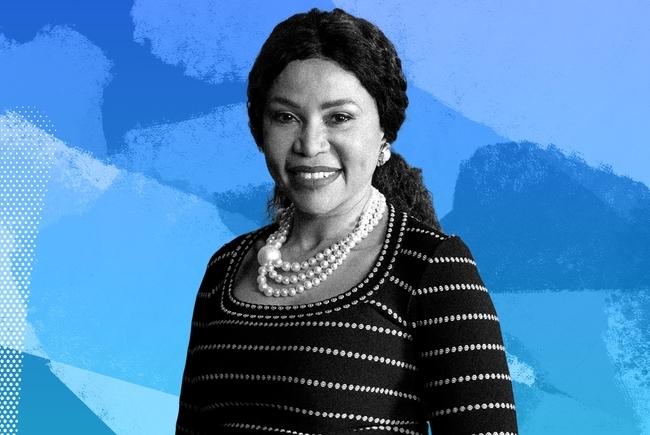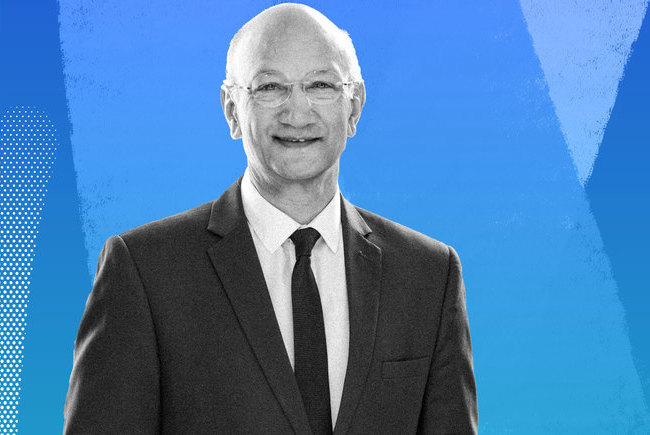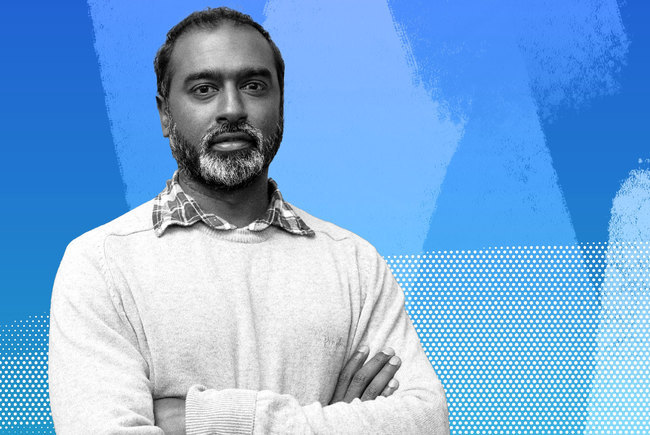Student affairs
27 September 2024 Read time 10 min.
The University of Cape Town’s (UCT) Department of Student Affairs (DSA) consists of four clusters: Student Housing and Residence Life (SH&RL); Student Financial Aid (SFA); Student Wellness Services (SWS); and Student Development (SD), which provide various humanising student support services and leadership development programmes. The department’s dedicated professionals are a community of diverse individuals who are passionate about their work and the students they serve.
All efforts facilitate the Rekindling of the Dying Embers of the Soul – Rehabilitate the Soul to Radiate the Soul so the students can Flourish Ad Infinitum (3R=F Ad Infinitum). These efforts are buttressed on the Humanising Pedagogy-Pedagogy of Discomfort and Pneumatological Pedagogy-[3Ps]. It is notable that the DSA continues to provide student support services despite financial constraints through budget cuts.
The Executive Director’s Office (EDO)
The EDO facilitated the Strategic Plan Review, The TransGariep Inter Institutional Student Leadership Programme, UCT Lead Launch, DSA Branding Launch and hosted the NASDEV-Women in Leadership Conference.
DSA Strat Plan Review 2023:
DSA held its third consecutive Strat Plan Review between 14 and 16 November 2023 at the Belmont Square Conference Centre. Key to highlight is that during the review, the DSA:
- created an Annual Performance Plan (APP) – with clear metrics and targets for the period 2024 to 2026
- increased its key strategic areas (KSAs) from five to six. The sixth KSA will focus on Advancing Health Promoting Practices.
Below is a breakdown of the DSA KSA goals for 2024:
KSA 1: Grow a Culture of Ethical Self-Organisation: To promote and widen the knowledge of the DSA Ethics Charter to at least 75% of DSA staff.
KSA 2: Establish an Academy for Leadership Development: To increase the visibility of the UCT Leadership Academy to 25% academic staff, 30% support staff, and 45% students, and to establish effective operations with the UCT Lead structure.
KSA 3: Develop a System of Integrated, Responsive and Agile Support: To increase staff satisfaction and sense of belonging to 60% by 2026.
KSA 4: Transform the Environment through Social Cohesion and Social Justice: Increase transformational practices by encouraging 75% of DSA staff to participate and increase predetermined transformation programmes.
KSA 5: Create Humanising Student Experiences: Increase awareness about food insecurity and malnutrition, as well as food sovereignty initiatives within the UCT community.
KSA 6: Advance Health-Promoting Practices: Increase students’ use of health-promoting software application/platforms.
TransGariep Student Leadership Programme
The TransGariep Student Leadership Programme ran for a second year between 2 and 12 July 2023. The aim of this programme is to develop self leadership skills. The premise is to teach students to lead themselves before leading others. The goal of self leadership is achieved through themes such as the “Pursuing the Agenda of the Soul”, with the following topics:
- Ethical Leadership
- Self-Awareness
- Relational Transparency
- Cultural Intelligence
- Critical Diversity
- Liberating the Soul – Embracing Self.
Three institutions participated in this programme: UCT, Sol Plaatjie University and Stellenbosch University.
UCT Lead Launch

After nearly two years of groundbreaking work, the DSA launched the UCT Leadership Academy in August 2023. The event was held at the Kirstenbosch National Botanical Gardens, and was attended by the vice-chancellor interim Emeritus Professor Daya Reddy; Deputy Vice-Chancellor for Transformation, Student Affairs and Social Responsiveness Professor Elelwani Ramugondo; some members of the Leadership Lekgotla, academics, professional staff, and students.
UCT Lead aims “to create a unique and sustainable advantage in higher education student leadership development”. It also aims to establish an integrated hub of collaborative partnerships. In this regard, UCT Lead will build on the legacy of UCT as the top global university in Africa.
Hosted NASDEV Women in Leadership Conference
The DSA hosted the NASDEV Women in Leadership Conference from 24 to 26 August 2023. This conference was attended by 120 delegates from all public universities and Technical Vocational Educational and Training (TVET) colleges around South Africa. The conference covered the following topics:
- Genderism in sport and healthcare: cisgender and transgender support in institutions of higher learning and government health services
- Opportunity access and provision: female entrepreneurial access in “unconventional” career paths
- Intersecting identities: navigating the complex space of student support services through the lens of psychosocial wellness within the higher education sector.
- Leveraging the use of technology in incorporating community engagement as a scholarly activity.
DSA brand launch
In September 2023, the DSA completed its first stage of the branding campaign, namely, its brand identity. This stage included: Brand Strategy, Brand Message, and Who We Are.
DSA Brand Strategy
As a guardian of the minds of the future, we proudly embrace the richness of African narratives and storytelling. Our brand strategy is a vibrant tapestry woven with the colours of Africa, celebrating our diverse heritage and inspiring a sense of belonging among students, staff, and stakeholders.
Brand Message
“Liberate the Soul for Well-being and Flourishing.” This compelling brand message goes beyond mere words; it serves as a guiding principle and rallying cry for the DSA.
Who We Are
We are more than just an institution; we are a vibrant community dedicated to empowering and inspiring students to unleash their full potential. Guided by a deep commitment to fostering a fair and just society, we embrace diversity and celebrate the unique talents of everyone. With a strong focus on holistic development, we provide a nurturing and inclusive environment where students can thrive academically, emotionally, and socially.
Student Wellness Services (SWS)

The following summary highlights the comprehensive range of services provided by SWS, addressing medical, counseling, outreach, crisis intervention, and peer-led support needs of the student population.
Staffing
SWS continued to adhere to professional standards and guidelines, including language diversity in counseling services. Efforts are ongoing to diversify the team to match student demographics and service clients.
Medical services
- completed the Main Clinic construction, offering preventive health programmes and outreach activities
- continuous operation of satellite clinics on campus and a combination of virtual and in-person consultations
- significant utilisation of medical consultations, particularly for reproductive health services
- collaboration with external stakeholders to enhance reproductive health services, including HIV prevention.
Pharmacy services
SWS launched the licenced Student Wellness Pharmacy, dispensing prescriptions issued by the medical team.
There was high utilisation of psychiatric and sexual/reproductive health medications.

Counselling services
- increased capacity through additional counsellors and donor funding
- implemented interventions to improve turnaround times
- availability of walk-in and 24-hour telephonic counselling services
- utilisation of various support groups and mindfulness sessions.
Outreach services
- created health promotion events, wellness drives, and campus-wide campaigns
- conducted health screenings and vaccinations
- introduced an initiative on indigenous health practices to enhance inclusivity.
Crisis Intervention Service (CIS)
- provided an ongoing emergency service by skilled psychiatric nurses, with a majority of calls coming from female students
Peer Intervention Programme:
- improvement of mental health service access through peer-led interventions, offering various forms of support and early detection assistance.
Student Development (SD)
The SD cluster within the university experienced a dynamic and fruitful year, despite facing significant budgetary constraints. The cluster, including the DSA, remained committed to achieving various objectives while aligning with the DSA Strategic Framework and the university’s Vision 2030.
New managerial appointments, such as Vhugala Nthakheni (Student Governance) and Mark Bashe (Sports), marked the beginning of a period of transition and progress within the department. Notably, the SD team played a pivotal role in organising the First-Year Campus Reception (FYCR) and subsequent orientation programmes, ensuring the seamless integration of approximately 4 300 first-year students into university life.
Moreover, the annual DSA Welcome Festival provided a platform for student societies and sports clubs to showcase their activities, facilitated by the Orientation Team and supported by UCT Radio.
The training of 250 orientation leaders further enhanced the effectiveness of orientation initiatives. Additionally, initiatives such as the Food Sovereignty Programme and financial assistance through the Students’ Representative Council (SRC) Assistance Fund and Afrifund underscored the university’s commitment to student welfare.
However, the year also saw challenges, including student protests regarding financial aid and housing issues, which necessitated interventions from both university authorities and law enforcement. Despite these challenges, the SRC remained active, organising various events and initiatives aimed at addressing student concerns and fostering community engagement. Notably, successful elections were held for faculty councils and the SRC, with a high turnout reflecting student engagement in governance processes.
Amid these activities, the university also achieved notable success in sports, participating in various tournaments and championships. From hosting major events like the Two Oceans Marathon and the PSI National Tournament to serving as a training venue for international competitions such as the Netball World Cup, UCT’s sports facilities garnered recognition on both national and global scales. Overall, the SD cluster demonstrated resilience and dedication in fulfilling its mission of supporting student success and holistic development throughout the academic year.
Student Housing and Residence Life (SH&RL)
With a capacity of 7 953 beds distributed across various tiers, the residence buildings offer a comfortable living environment thoughtfully designed to accommodate students’ needs. The residence life programme aims to provide a positive out-of-class experience through diverse programmes, supported by a dedicated team of 47 professional and managerial staff and approximately 260 students.
Despite challenges such as financial pressures and policy gaps, 2023 demonstrated resilience, adaptation, and innovation within the SHRL cluster. Notably, the team’s commitment to exceptional services led to an enhanced overall living experience for the diverse student community through collaborative efforts and strategic initiatives.
One of the primary objectives for 2023 centred around sustainability, focusing on implementing cost-saving initiatives and enhancing operational efficiency. However, there were challenges, including student protests regarding residence withdrawals and fee blocks, impacting residence revenue and student access to housing.
Regarding admissions, while offers increased steadily, take-up and final take-up showed fluctuations, influenced by factors like delayed National Senior Certificate results and limited processing time. Cost drivers included consulting costs, supply chain management budget adjustments, and rehabilitation projects, while bookings data reflected increased take-up in 2023 across several months, resulting in low vacancies.
In residence life programming, initiatives focused on student development, peer mentorship, tutoring, mental health support, and governance refinement. Additionally, the Positive Psychology Co-Curriculum aimed to enhance student well-being and resilience, reflecting our commitment to holistic student development was presented.

Key accomplishments included governance benchmarking, gender-based violence strategy formulation, catering service enhancements, and residence maintenance projects. Staff development initiatives focused on enhancing insourced staff lives and skills development.
Challenges included balancing high demand, maintenance concerns, and security issues. Looking ahead to 2024, priorities include investing in technology and infrastructure, strengthening partnerships, finalising residence operating models, and implementing cost-saving measures to optimise operational expenses.
As we embark on this journey, our commitment remains steadfast in providing exceptional housing and humanising residence life experiences that support the holistic development and well-being of our students.
Student Financial Aid (SFA)
SFA manages the administration of NSFAS and other donor funding for financially needy and academically deserving students.
NSFAS is the biggest provider of student financial aid across the higher education sector. At UCT, NSFAS funds up to 40% of South African undergraduate students.
Donors also play an important role in helping to meet any study cost shortfall that students may have, but some also fund students in study areas not covered by NSFAS. Donors are an important part of the funding landscape.
SFA therefore plays an important role between students and funders, trying to bridge the gap and provide much-needed support.
Some of the notable interventions for 2023 are:
Student Laptop Programme
- makes laptops accessible for all students
NSFAS funding
- more than R600 million in funding for deserving students
Donations
- R50 million towards helping students achieve their academic aspirations
GAP funding
- UCT’s missing middle funding programme for those that are not NSFAS eligible and need some financial support
Fee Debt Appeals
- annually SFA manages the undergraduate fee debt appeal process to help students that meet the financial and academic criteria to continue with their studies
Allowances
- for the first six months of the year, students’ allowances were paid directly into their bank accounts, after which NSFAS introduced the NSFAS Bank Account, a direct allowance payment system.
Graduates
- in 2023, 1 151 financial aid students realised their academic ambitions and graduated.
 This work is licensed under a Creative Commons Attribution-NoDerivatives 4.0 International License.
This work is licensed under a Creative Commons Attribution-NoDerivatives 4.0 International License.
Please view the republishing articles page for more information.
Annual reviews
Year in Review 2023
27 Sep 2024
Year in Review 2023

There are different ways to define the University of Cape Town (UCT).
27 Sep 2024 - 2 min read
By its very nature, the university sector is a place of transition.
27 Sep 2024 - 4 min read
In a world whose future relies increasingly on international co-operation and global thinking, developing and maintaining strong partnerships with institutions in other countries can be a game changer for research that addresses the wicked problems that have become household words in the last few years.
27 Sep 2024 - >10 min read
Previous Editions
































